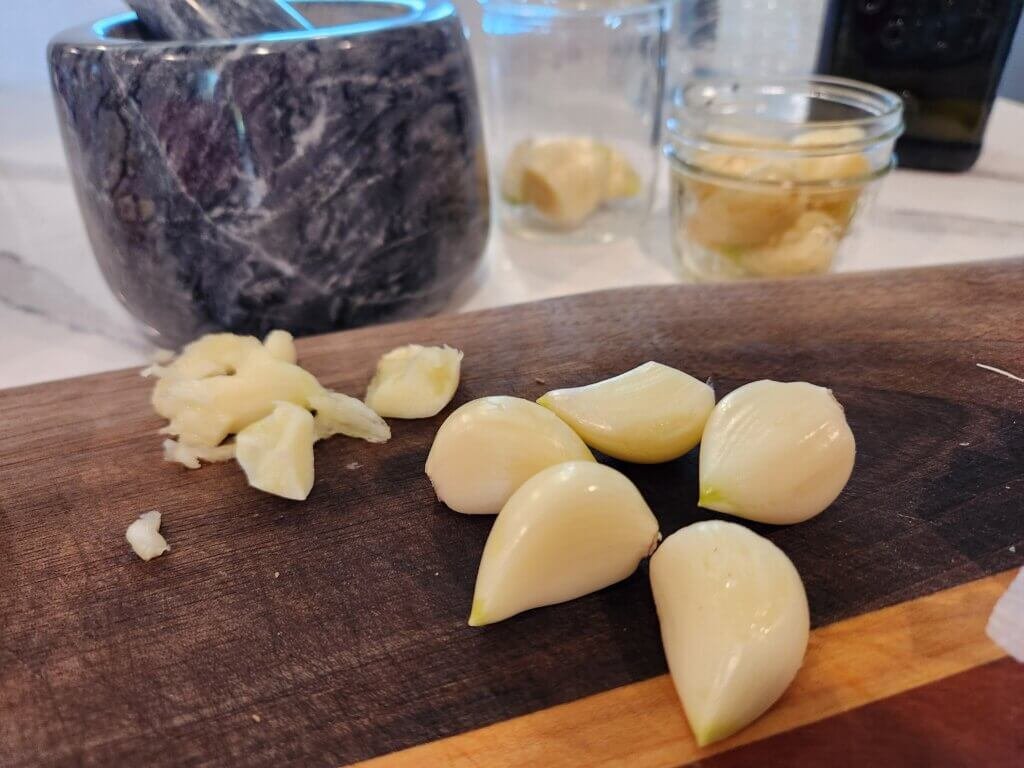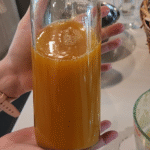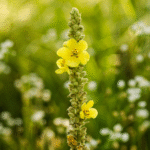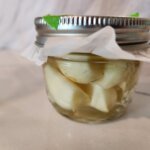Garlic is one of those kitchen staples we often take for granted. A clove here, a clove there tossed into soups, sauces, or roasted with veggies. But this humble bulb has a lot more to offer than flavor. For thousands of years, people around the world have turned to garlic not just as food, but as medicine. Modern research is now confirming what ancient healers already seemed to know: garlic supports heart health, strengthens immunity, and may even help the body fight off infections.
In this article, we’ll explore why garlic is considered a superfood, what science has to say about its benefits, how it’s been used in traditional medicine, and practical ways you can start using garlic both in your meals and as natural remedies at home.
This post contains affiliate links. If you use these links to buy something we may earn a commission. Thanks.
Why Garlic Is Considered a Superfood
Garlic might just be one of the most powerful foods you can keep in your kitchen. Each clove is loaded with vitamins and minerals, including vitamin C, vitamin B6, manganese, and selenium. It also contains antioxidants that help protect your cells from damage. But what makes garlic stand out is its sulfur compounds – especially allicin, which forms when raw garlic is chopped or crushed.
These compounds are what give garlic its strong smell and flavor, but they’re also what make it medicinal. For centuries, garlic has been valued as both a food and a natural remedy, bridging the gap between the dinner plate and the medicine cabinet.
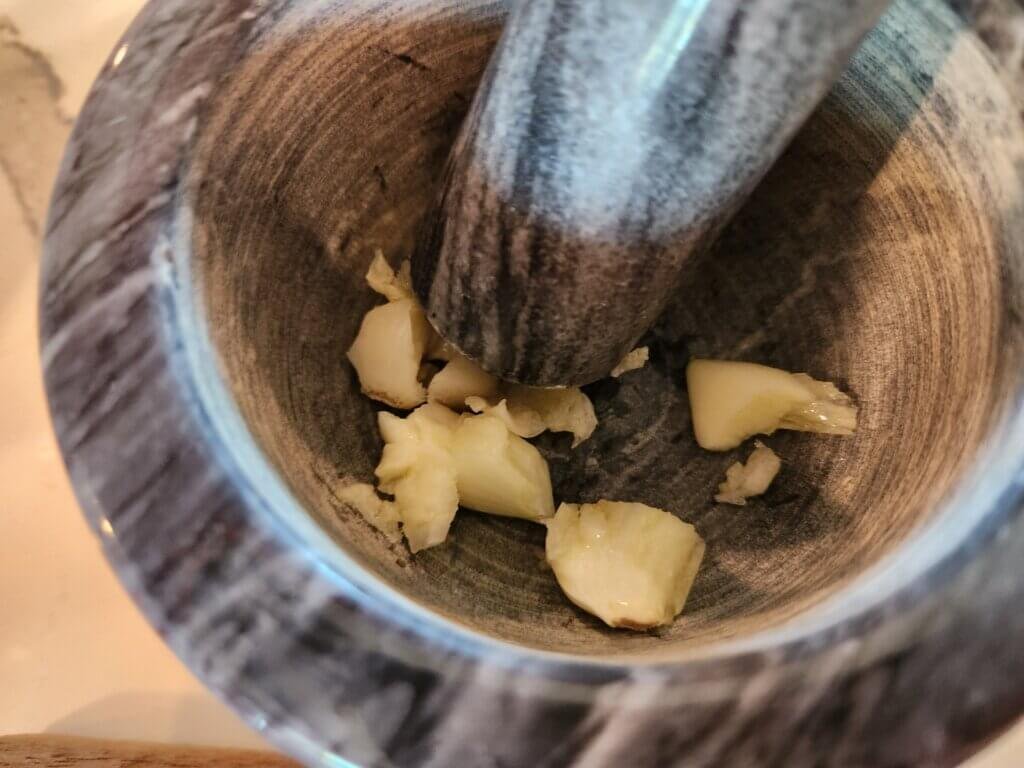
What is Allicin & Why Is It So Powerful?
What makes allicin so special is its antimicrobial power – it prevents the growth of bacteria and fungi in the body and could outright kill those cells! That means they if you’re fighting an illness, allicin literally stops the bacteria from growing and kills the bad cells.
It also works as an antioxidant, helping to reduce damage from free radicals in the body. Researchers believe allicin is one of the key reasons garlic supports immunity, heart health, and may even help shorten colds.
One important note: allicin is delicate and breaks down quickly with heat. To get the most benefit, try eating some garlic raw, or let chopped garlic rest for about 10 minutes before cooking – it gives allicin time to form and hold its strength.
Science-Backed Health Benefits of Garlic
Heart Health and Blood Pressure
Studies suggest garlic may help relax blood vessels and improve circulation, making it a natural ally for heart health. A review published in the Journal of Nutrition found that garlic supplements reduced blood pressure in people with hypertension, in some cases nearly as effectively as prescription drugs.
Immune System Support
Garlic is famous for its immune-boosting qualities. A study published in Advances in Therapy found that people who took garlic supplements had fewer colds and recovered faster compared to a placebo group. That’s one reason garlic shows up in so many traditional cold and flu remedies.
Cholesterol Management
Garlic has been shown to lower LDL (“bad”) cholesterol while having little to no effect on HDL (“good”) cholesterol. A 2016 meta-analysis found that aged garlic extract in particular had beneficial effects on cholesterol levels, which may reduce long-term risk of heart disease.
Antioxidant and Anti-Inflammatory Properties
The antioxidants in garlic help fight free radicals, which contribute to aging and chronic disease. Compounds like allicin and diallyl sulfides also have anti-inflammatory effects, which may help reduce risk of conditions linked to chronic inflammation – it can even help acne! Cleveland Clinic article here.
May Help Regulate Blood Sugar
Some research suggests garlic can help improve insulin sensitivity and lower fasting blood sugar, making it a potential supportive food for people with type 2 diabetes. While more research is needed, the results so far are promising.
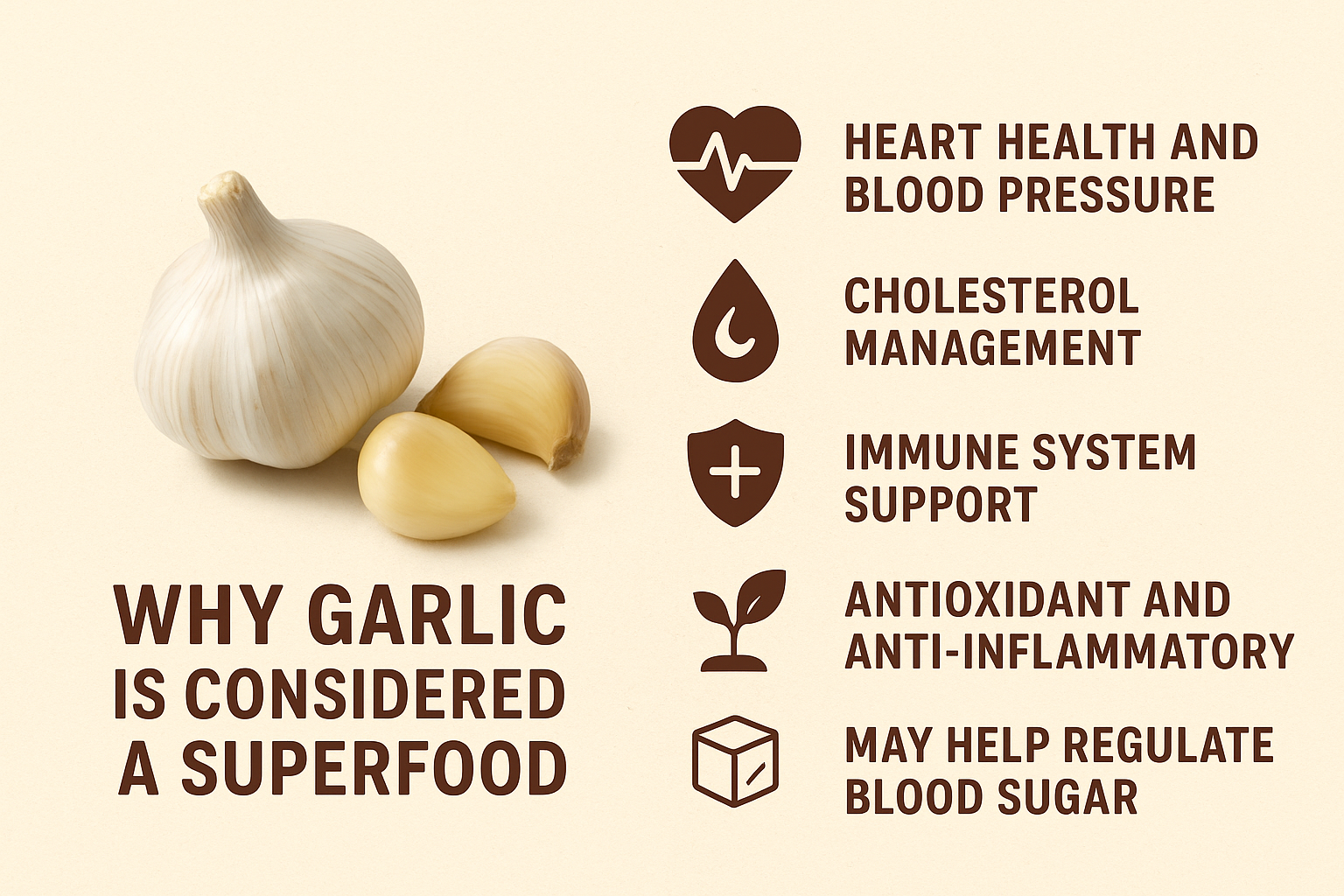
Garlic in Traditional Medicine Around the World
- Egypt: Garlic was fed to workers building the pyramids to boost strength and endurance. It was also used as protection against disease.
- Greece and Rome: Athletes and soldiers ate garlic before competitions or battles for stamina and resilience.
- Ayurveda (India): Garlic has been used for thousands of years to balance the body, stimulate digestion, and support immunity.
- Traditional Chinese Medicine (TCM): Garlic is considered warming and is often used to help the body fight infections and regulate energy flow.
What’s fascinating is how modern science is starting to confirm many of these traditional uses. For example, garlic’s role in boosting immunity and fighting infection lines up with both Ayurvedic and TCM practices. Even big pharma can’t keep medicinal herbal benefits hidden for too long.
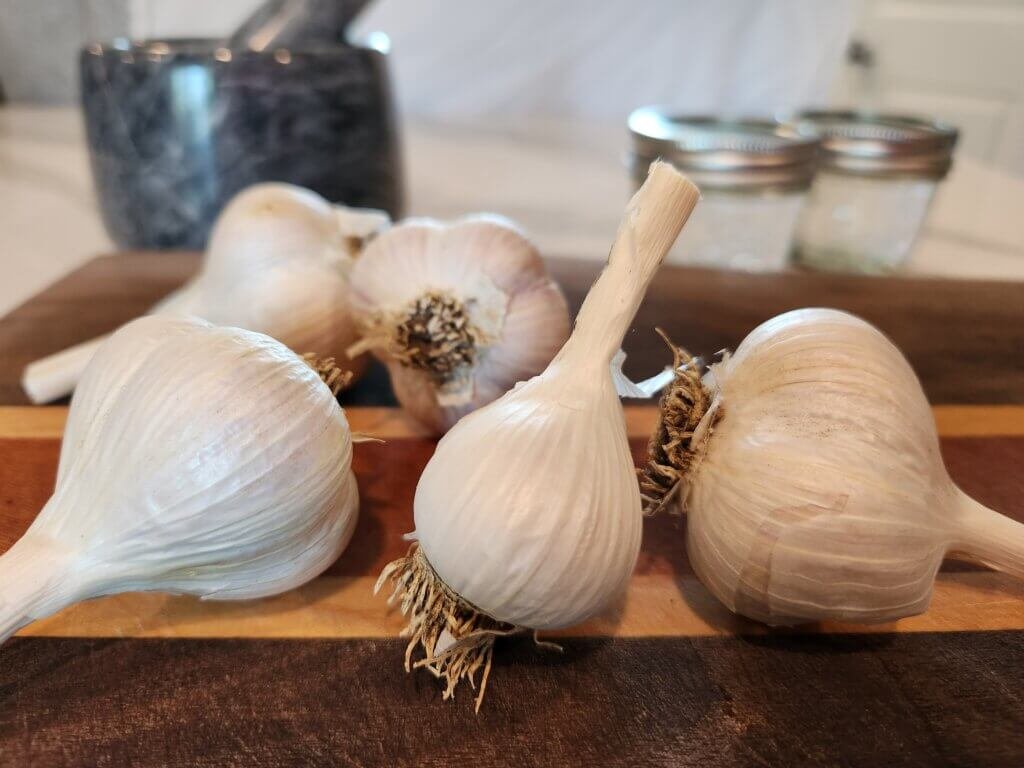
Medicinal Garlic Remedies You Can Try at Home
If you want to go beyond cooking with garlic, there are plenty of simple home remedies worth trying:
- Garlic Tea for Colds – Steep crushed garlic cloves in hot water with lemon and honey. It’s soothing for sore throats and may shorten the duration of colds.
- Pickled Garlic – Raw garlic infused in apple cider vinegar, then combined with honey to create a tasty, health boosting bite.
- Garlic Honey (Syrup) – Raw garlic infused in honey creates a natural cough syrup that’s both antimicrobial and soothing.
- Garlic Tincture – A concentrated extract made by soaking garlic in alcohol or vinegar. Useful for long-term storage and daily health support.
- Garlic Oil – Can be used topically for skin infections or ear discomfort. Also useful in cooking to preserve some of garlic’s active compounds.
Each of these remedies deserves its own step-by-step guide (which I’ll expand into separate posts soon!).
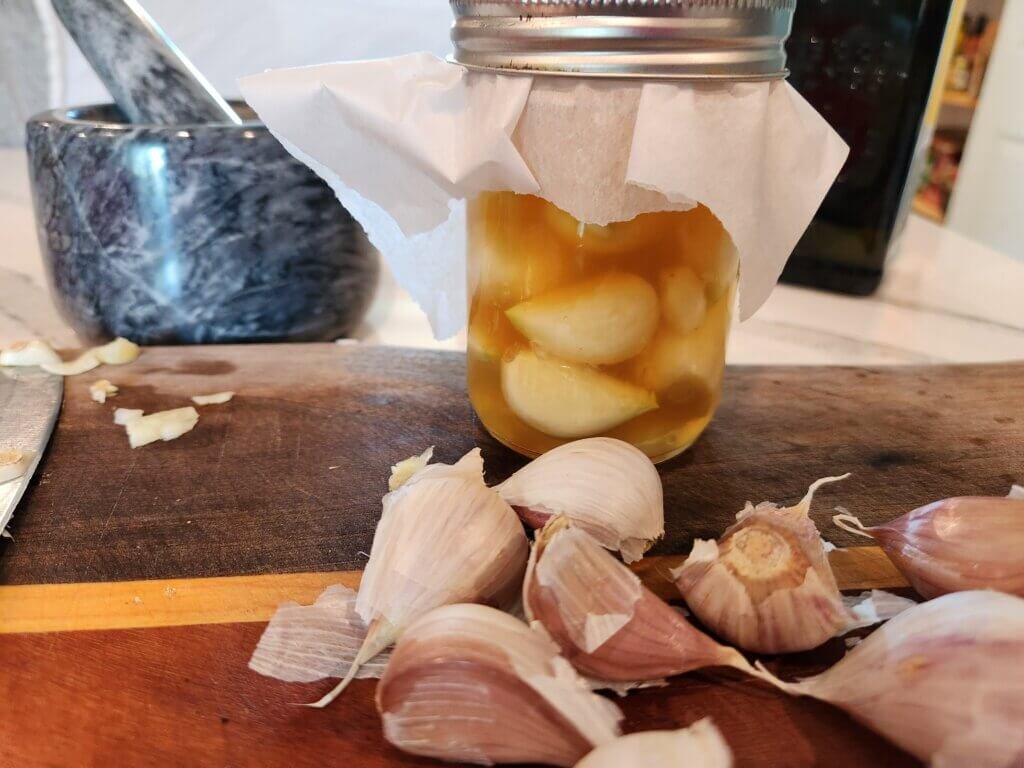
Raw vs Cooked Garlic – Which Is Healthier?
Garlic’s most powerful compound, allicin, forms when garlic is chopped, crushed, or chewed raw. Cooking, especially at high heat, can destroy allicin. That said, cooked garlic still contains plenty of beneficial sulfur compounds and antioxidants.
To get the best of both worlds, chop garlic and let it sit for 10 minutes before cooking. This allows allicin to form, making it more resistant to heat. Rosemary Gladstar’s Medicinal Herb’s A Beginner’s Guide book taught me about this!
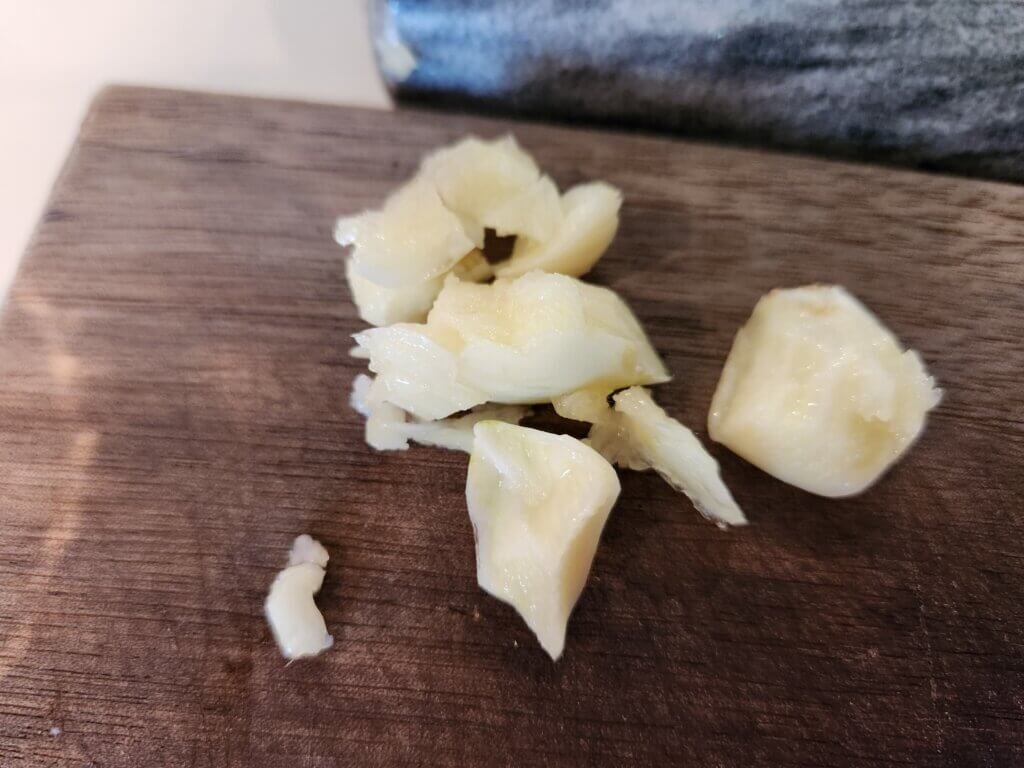
How Much Garlic Should You Eat Daily?
For most people, 1–2 cloves of fresh garlic per day is a healthy amount. In supplement form, studies often use the equivalent of 600–1,200 mg of garlic extract per day. Like anything else, moderation is key.
Who should be cautious:
- People taking blood-thinning medications (like warfarin)
- Those scheduled for surgery (garlic can increase bleeding risk)
- Anyone with digestive sensitivities
Always check with a healthcare provider if you’re unsure.
Possible Side Effects and Safety Concerns
While garlic is safe for most people, it can cause:
- Digestive upset (especially raw garlic)
- Strong garlic breath and body odor
- Blood-thinning effects that may interact with medications
- Skin irritation when applied topically
If you notice discomfort, try reducing the amount or switching to cooked forms.
Growing and Storing Garlic for Maximum Health Benefits
The fresher the garlic, the stronger its compounds!
- Hardneck varieties (better flavor, easier to peel, grow well in colder climates).
- Our detailed How To Grow Garlic in Zone 5 Guide here
- Softneck varieties (longer shelf life, common in grocery stores).
Store garlic bulbs in a cool, dry, well-ventilated place. Avoid refrigeration, which can cause sprouting. Properly stored garlic can last for months while retaining its potency.
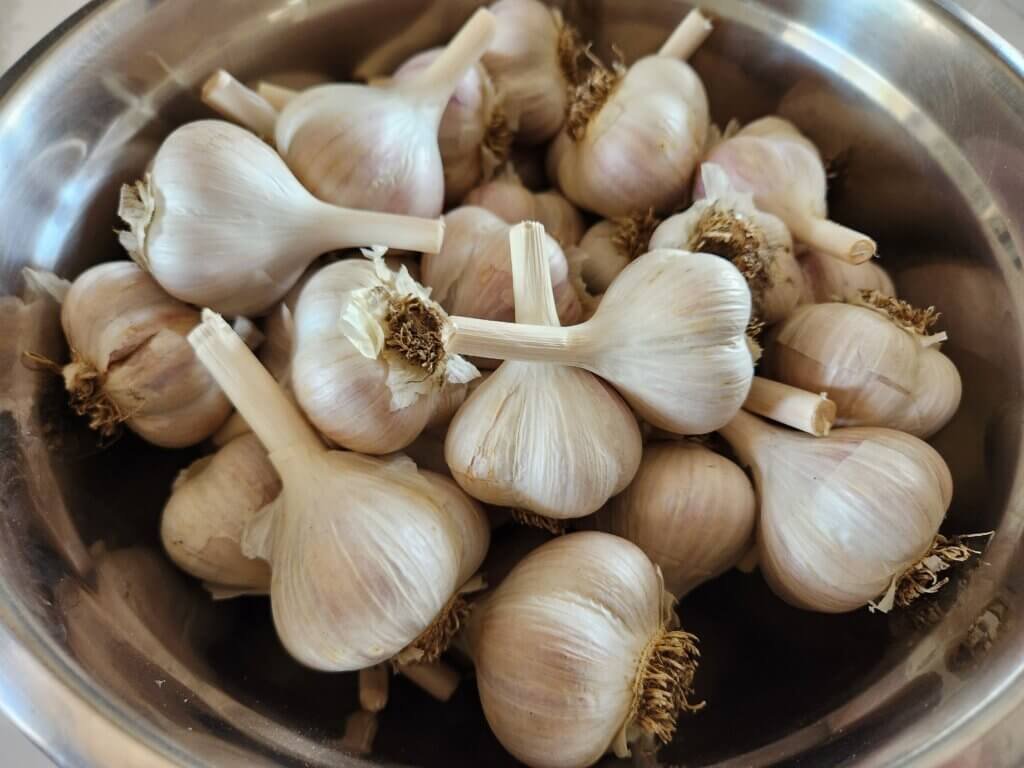
Final Thoughts: Garlic as Food and Medicine
Garlic is a humble kitchen staple with a reputation that spans thousands of years. From ancient healers to modern scientists, it’s valued for its ability to support the heart, fight infections, and strengthen immunity. Whether you eat it raw, cooked, or as part of a home remedy, adding garlic to your daily life is a simple step toward better health.
FAQ: Garlic Benefits and Remedies
Raw garlic contains more allicin, but cooked garlic still has valuable antioxidants and sulfur compounds.
Yes, studies suggest garlic can reduce the number of colds and help you recover faster.
More than 4 cloves daily may cause digestive upset or increase bleeding risk in some people. Stick to 1 maybe 2 cloves per day. Personally I only use 1/2 a clove per day because I also use Fire Cider that has garlic in it.
Research has shown that garlic supplements may help reduce blood pressure in people with hypertension.
Raw garlic, tinctures, syrups and oils all work – choose what’s easier for you to use consistently.

